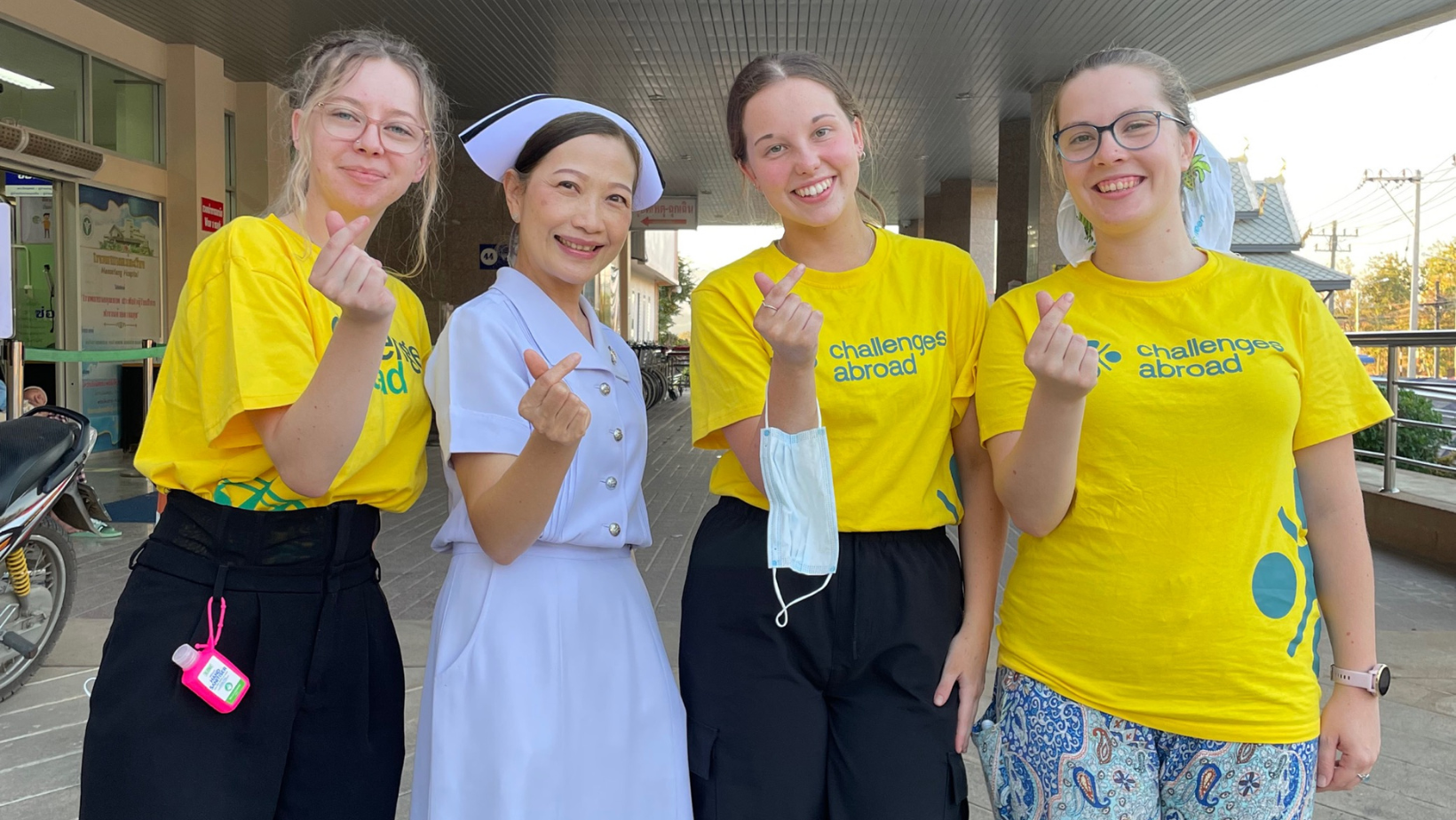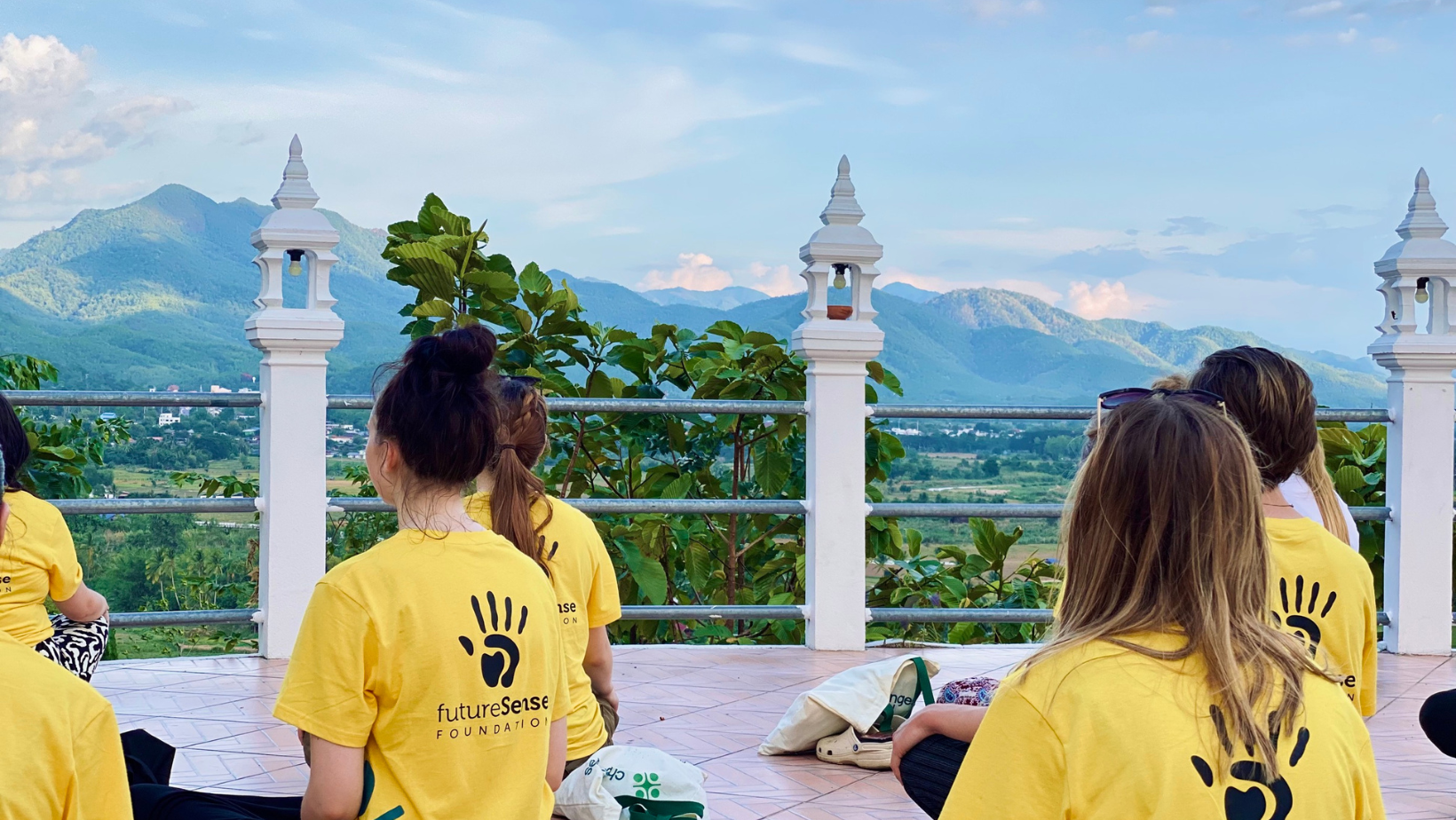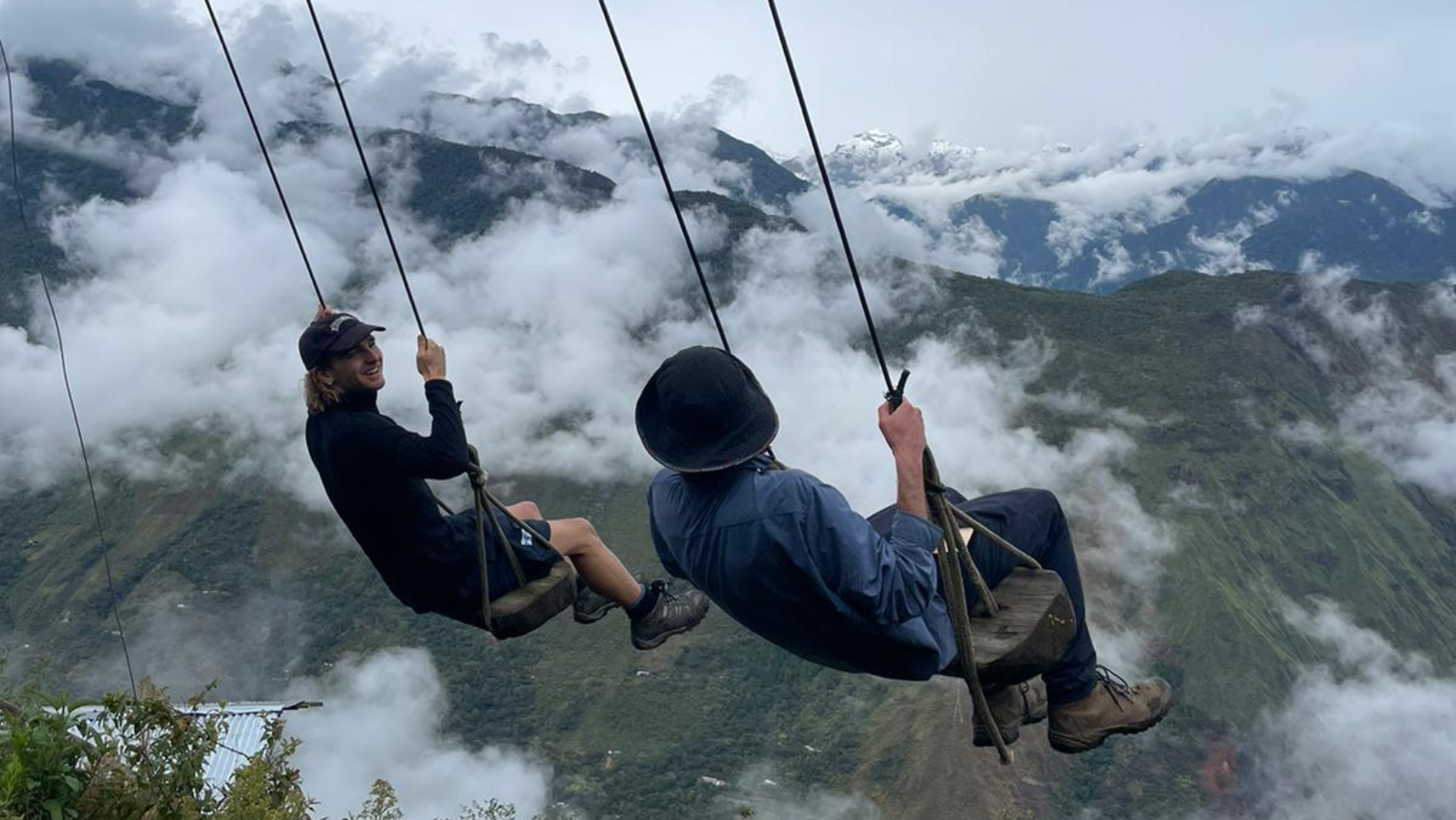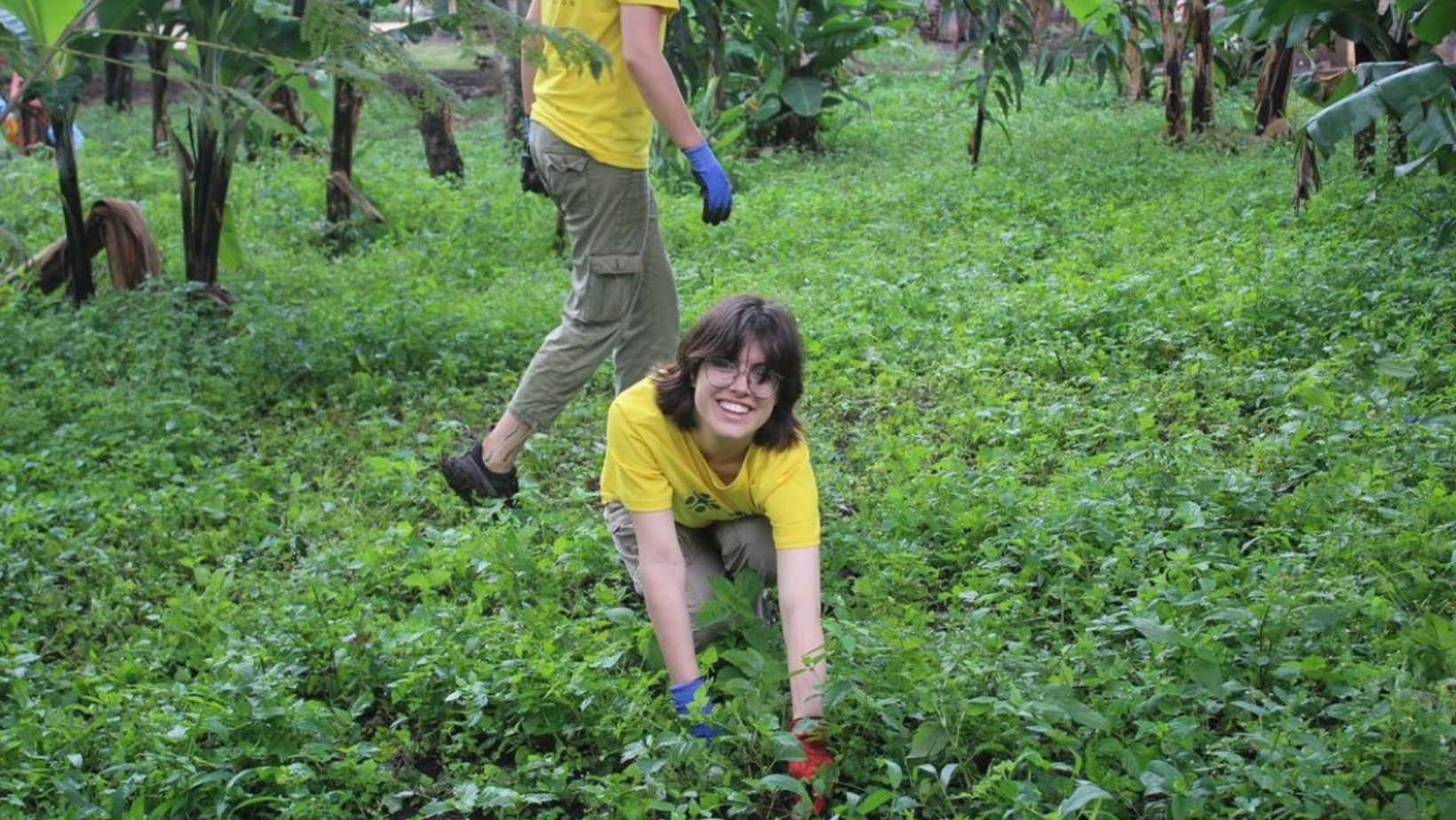At first thought, you might think of a Global Citizen as someone who has travelled or lived in many countries across the world. A love of travel and an eagerness to see the world, might lead someone down the road to Global Citizenship, but in terms of a definition, it means so much more than that! Wanting to just see the world isn’t enough, you must take that opportunity to learn about it, understand it’s differences and know your role in terms of making an impact on it.

Global Citizen, Ebony: “Being a Global Citizen doesn't refer to someone who has travelled a lot. To me, it refers to someone that is open-minded and who can immerse themselves in a culture different to their own. It's about embracing a different lifestyle and viewing it from the perspective of the local people and communities, rather than comparing it to 'home.' The best way to become a global citizen is to be active and talk with and participate in the local community.”
Defining Global Citizenship:
For a more formal description of the term, we can turn to the UN’s definition of Global Citizenship: the umbrella term for social, political, environmental and economic actions of globally minded individuals and communities on a worldwide scale. In addition to this, it can also refer to the belief that individuals are members of multiple, diverse, local and non-local networks rather than single actors affecting isolated societies.
To break this down into a more relatable definition, let’s also look at Oxfam’s three-part description of Global Citizenship:
- An awareness of how decisions in one part of the world can affect people living in a different part of it, and an understanding that we all share a common humanity and are of equal worth.
- To be open to engaging positively with other identities, wanting to broaden your understanding of cultural differences, and being able to recognise and challenge stereotypes.
- To be thought of in relation to the Earth itself and how we use/share its resources fairly, while upholding the human rights of all.
You might have realised; Global Citizenship can mean a wide range of different things to different people. Defining the term isn’t as clear cut as defining an apple for example, as its definition can change depending on your own experiences. At Challenges Abroad, we see Global Citizenship as the recognition that we are all citizens of the world, not limited to our own country, and that we have a role to play in making sure that everyone around the world has equal opportunities. Every day, we welcome new Global Citizens to our community of people who care and every day, we meet people who are outraged by social injustice and want to do what they can to make a difference (both overseas and in their own local community).

Global Citizen, Louise: “Being a Global Citizen to me is being aware of the world around me, my place in it and how I can make a positive impact. It is acknowledging that no particular way of being is better than another and that our differences are what make the world so amazing.”
But why is Global Citizenship important?
The key elements of Global Citizenship are awareness, responsibility and participation. The more that we are aware of our place in the world and how that compares to others, the more that we will feel a responsibility to help those who are less fortunate than us. The best way to do this is to actively participate in our communities to create positive change across a whole range of social issues, like human rights and climate change. Although these might seem like huge issues to tackle as an individual, the more people that take action to make a change, the faster that change will occur. At Challenges Abroad, we believe that one student, one team, one program can be a catalyst for change. In many instances, what appears to be the smallest of actions; picking up a piece of litter for example, can have huge impacts – not only have you taken responsibility for cleaning up the community, but you have also raised awareness of the issue amongst others, and set a standard for others to follow in the future.
In short, Global Citizenship gives us hope for a future in which our world is sustainable and equal.
How can I become a Global Citizen?
It is time for you to become more aware of and understand the wider world and YOUR place in it. To become a Global Citizen, you must take an active role in the community and work towards making the world more peaceful, sustainable and fair.
This might sound more complicated than it really is... becoming a Global Citizen is really easy. Once you start thinking critically about your place in the world and commit to doing your bit to end inequalities, you're pretty much half-way there! The final step is to take action and actually do something, whether that means getting involved in your local community or doing something that will benefit an overseas community (such as a Challenges Abroad program). This is your opportunity to broaden your horizons and enhance your understanding of the world, all while making a positive impact on the lives of others!
Here are some steps to take towards becoming a Global Citizen:
- Investigate both local and global issues of social injustice.
At a global scale, this could start with a simple Google search, or you might want to get out there and doing some first-hand research into the issues that are faced by your local community. We tend to have certain pre-conceptions when it comes to thinking about people, places, and the issues they might be facing; so, this is your chance to challenge these perspectives, be proven wrong and deepen your level of understanding.
2. Make local and global connections and assess the differences in views, values and assumptions.
You might be thinking, how on earth do I suddenly just create global connections? But you probably have more opportunities than you think – your university for example, will have vast numbers of international students, so there’s your starting point! To make a connection, you just need to start a conversation.
3. Take the opportunity to make informed, reflective action and be heard.
You’ve done your research, made your connections and now it’s time to take action! No matter how small or large this action might seem, you never know how big of an impact it could have. Making the decision to travel to a remote overseas community for example, will not only push yourself outside of your comfort zone, but it puts you at the forefront of change. The simple act of reading a child a story in one of our local partner schools, will impact the quality of their education, but it also inspires them as they know someone cares.

Global Citizen, Brodie: “I think a global citizen is someone who looks beyond the bubble of their everyday life, to see the different ways that people experience life, and who also appreciates what they have in their own life that others may not have. Whilst in Peru, I had experiences that made me realise that despite different nationalities, cultures and landscapes, at the end of the day we share a lot of things... the same stars, blue sky, sun, and love of tunnel ball. I think that this realisation has helped me in accepting cultural differences and made me keen to extend any work I do in the future to other places across the globe.”
As we continue to grow our global community of people who care, Challenges Abroad is on a mission to create a new generation of Global Citizens, and we want you to join the movement!





